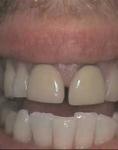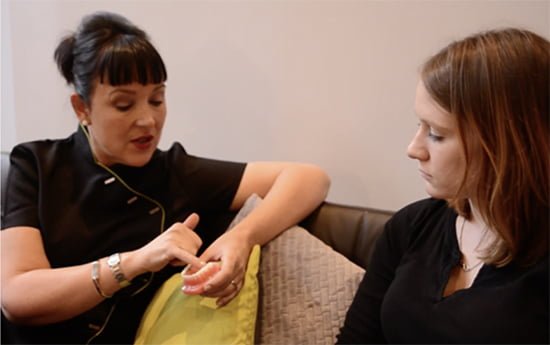| Opening Hours | |
|---|---|
| Mon - Fri | 8:00am - 6:00pm |
| Sat | 8:00am - 5:15pm |

What are dental bridges?
A dental bridge is a fixed restoration used to replace one or more missing teeth.
Why do people need bridges?
Dental bridges are used when there are 1 or more teeth missing in a patient mouth with healthy gums and good oral hygiene.
Are dental bridges the best solution?
Dental bridges are a great solution for a lot people, however the success of dental bridges is dependent on many factors, including oral health and hygiene and the adjacent teeth being in a good enough condition to support the replacement tooth.
What are the signs and symptoms that a dental bridge is needed?
Missing teeth are the most obvious sign that a bridge is needed. Although there are many different options for replacing missing teeth, bridges are good for those who want a fixed solution without the expense of dental implants, again this is entirely dependent on the condition of the patient’s mouth.
Are There Different Types of Bridges?
There are three common types of dental bridges:
1. Cantilever bridge
This is where you have an abutment and a pontic. The abutment is the ‘anchor’ and the pontic is the false tooth. The adjacent tooth to the gap is prepared to receive a crown (abutment), which has the false tooth attached to it (pontic). Once the bridge has been made in the lab it cemented in place and can last a life time with a good diet and a high standard of oral hygiene. These types of bridge are better for back teeth as there is more support for chewing food.
2. Maryland Bridge
This involves minimal preparation compared to the cantilever bridge. The adjacent teeth are prepared in order to receive a metal wing. The metal wings act as an ‘anchor’ to keep the false tooth in place. These bridges are usually used for the front teeth as they are not usually strong enough to take chewing forces. Once they have been made in the lab the bridges are fixed with a resin cement. Just as the cantilever bridge, this type of bridge can last a life time as long as they are looked after correctly.
3. Implant retained bridge
These types of bridges are not suitable for everyone, as there needs to be adequate bone level to support the implants. We determine this by taking a CT scan, however in majority of places a bone graft can be given. Once the implants are placed there is usually a healing period after which the preparations are made to make the bridge. The bridge is either screwed into place and the screws covered with a composite filling material or cemented. These types of bridges are best for larger gaps and especially back teeth as there is greater support for downward forces, although they are also just as good for the front teeth.
Treatment Gallery – Before & After
-
 Before
Before
 after
after
-
 Before
Before
 after
after
What are dental bridges made from?
All bridges are made from either metal covered with porcelain where the metal is not visible or all porcelain. Both types are different costs, the dentist will advise which they believe is the better option as all patients needs are different, however the final decision is in the hands of the patient.
How much do dental bridges cost?
The cost of dental bridges is all dependent on the type of bridge, type of material and how many teeth we are replacing. The highest costing dental bridges are the implant retained, however the longevity of these bridges are head and shoulders above the rest.
Dental Bridge procedure and timescales
It usually takes around 2-3 visits with the dentist with 1-2-week intervals to get a good quality bridge made. The first visit is to prepare the adjacent teeth to receive the bridge and take impressions to send to the lab, a temporary bridge will be placed in the interim. A 2nd visit will be required to cement the permanent bridge in place. Implant retained bridges take longer as there is at least a 12-week healing period in between implant placement and bridge preparation and then usually two weeks later the bridge can be fitted.
How to take care of your dental bridge?
Taking care of your bridge is very similar to looking after your natural teeth. Making sure you brush twice daily for at least two minutes with an electric toothbrush ideally, ensuring you are flossing around the bridge and under the pontic to remove any food debris. There are special types of floss or interdental cleaning aids to help you with this e.g. superfloss or waterpik as well as your regular 6 monthly checks ups and hygiene visits.
If you have an implant retained bridge then we would recommend a more regular routine with the hygienist usually every three months as implants take a greater deal of care.
If the dental bridge is damaged or lost?
If the bridge is lost or damaged then we would advise you book an emergency appointment to see what can be done for you, either a temporary measure or a permanent solution.
Why is our dental practice the best for dental bridges?
Here at the dentist at liberty place we are home to some of Birmingham’s leading dentists and specialist and together with over 150 years of dental know how, we are confident that we offer our patients the best dental services money can buy.
What dental bridge payment options are available?
There are a number of payment options available to suit everybody’s needs whether that be financing your treatment interest free for up to 24 months or pay as you go, anyone can have the smile they deserve.
We also offer practice membership from as little as £17.20 per month which entitles you to a huge 15% off your bridge treatment!
We'd love to hear from you
Contact us with your questions or to request a ring back.










